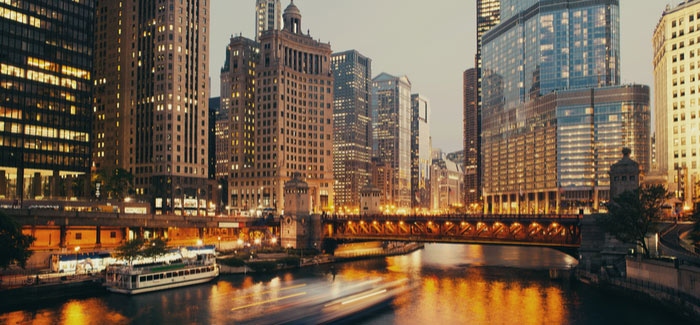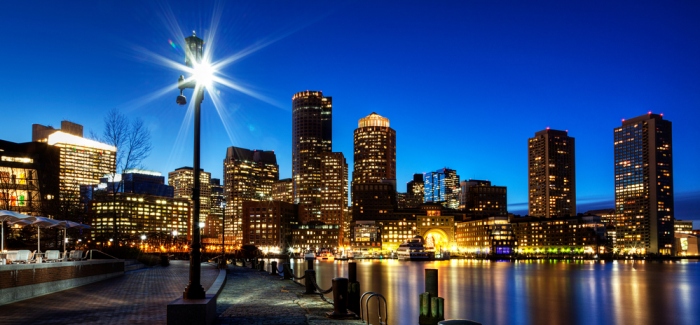In the heart of the US Midwest region and the so-called ‘Corn Belt’, Iowa has long been known for its agricultural strength, gaining the nickname ‘food capital of the world’.
But, while cereal crops are still big business, in recent years this fertile state has successfully diversified its economy, establishing itself as one of the US’s top destinations for young professionals.
In 2012, Iowan capital Des Moines ranked second (after Washington, D.C.) in Forbes magazine’s list of the best US cities for jobs. In 2011 Forbes named it the best city for young professionals, and in 2010 it topped the magazine’s list of the best US regions for business and careers.
This success is largely based on Iowa’s strengths in the agriculture, biotech and financial industries, with major employers including Principal Life Insurance Company, Wells Fargo Bank, Pioneer Hi-Bred, and of course John Deere (tractors remain the state’s most profitable commodity export).
As well as having a higher concentration of large companies than any other city assessed in the Forbes studies, Des Moines also has high numbers of start-ups and expanding businesses.
Unsurprisingly, the city is a popular destination for recent graduates. Opportunities for career progression are good, and while salaries are by no means the highest in the US, living costs are relatively low – making for a highly attractive overall package.
Iowa is also at the forefront when it comes to US politics. The Iowa caucus is the first major electoral event in the long, state-by-state process of selecting US presidential candidates for both the Republican and Democratic parties – making it a particularly exciting place to be during electoral campaigns.
Iowa is part of the ‘Midwest’ region of the US. This term is not always used in the same way, and can be confusing as many of the states included are much further east than you might expect!
However, in the categorization used by the US Census Bureau, the Midwest refers to a group of 12 states in the north of the US. Iowa is right in the centre of these, with the other 11 Midwestern states being Minnesota, Illinois, North Dakota, South Dakota, Nebraska, Kansas, Missouri, Indiana, Ohio, Michigan and Wisconsin.
It’s usual to hear Iowa’s geography described as flatland, but you’ll also find gentle hills and valleys, prairies and savannahs, wooded areas, lakes and rivers – most notably the Missouri River, along the western border, and the Mississippi River, which runs the full length of the eastern side of the state.
After Des Moines, notable cities include Iowa City, Sioux City, Fort Dodge, Davenport, Dubuque and Cedar Rapids.
 Iowa: Fast facts
Iowa: Fast facts
• Total population is 3 million (2011) – less than 1% of total US population
• Located in the mid-west part of the US; borders with Minnesota to the north, Wisconsin and Illinois to the east, Missouri to the south and Nebraska and South Dakota to the west
• Capital and largest city is Des Moines
• Climate is humid continental – hot summers and harsh winters
• Famous Iowans include actors John Wayne and Elijah Wood, non-fiction author Bill Bryson, and women’s rights pioneer Carrie Chapman Catt
• Eldon, Iowa, is the site of Dibble House – the inspiration for Grant Wood’s iconic 1930 painting ‘American Gothic’
• Films set in Iowa include Cedar Rapids (2011), Field of Dreams (1989), Sleeping with the Enemy (1991) and Zadar! Cow From Hell (1989)
• In 2011, Iowan students who took the SAT had the third-highest average score in the US, behind only Illinois and Minnesota
 Top universities in Iowa
Top universities in Iowa
Iowa’s highest ranked university is the University of Iowa (pictured), in Iowa City, which makes the top 200 of the 2011/12 QS World University Rankings.
The university offers a wide range of undergraduate, graduate and professional (more vocational) degrees, and has a fairly diverse student community.
An estimated 55% of students come from within Iowa, 25% from adjoining states, 9% from other US states, and about 10% are international students, from 100 different countries.
Iowa City is known as a hub of arts and culture, and this is very much a part of student life at the University of Iowa – with regular events including jazz and pop concerts, and visiting talks from artists, writers and scientists.
Meanwhile the university’s graduate-level creative writing program – known as the Iowa Writers’ Workshop – has a well-founded reputation for producing successful authors. To date, alumni of the course have collected 17 Pulitzer Prizes, and numerous other awards.
However, creative writing is by no means the university’s only strength. It is also well known for research in fields including agricultural medicine, biomedical sciences, pharmacology, genetics, hydraulics, space research and speech and hearing.
Iowa State University (ISU), located in Ames, to the north of Des Moines, also performs strongly in the rankings – appearing in the top 300 of the 2011/12 QS World University Rankings.
Like the University of Iowa, ISU has strengths in a wide range of academic fields, and an internationally diverse student community. Meanwhile Ames offers the attractions of small-town life, without the risk of boredom. It has its own share of cultural venues, sporting events and outdoor activities – and if you do want to explore a larger city, Des Moines is only a 30-minute journey away.
Iowa’s third public university is the University of Northern Iowa (UNI), in Cedar Falls, which is also well respected both in Iowa and beyond.
A much higher percentage of UNI’s students come from within Iowa, compared to the other two state colleges, but nonetheless the university has a strong focus on internationalization. It has a dedicated Center for Multicultural Education, and runs a popular study-abroad program, having established partnerships with universities around the world.
In addition to these three state universities, Iowa has many private colleges, and there are also community colleges across the state. The latter offer shorter courses, including two-year associate’s degrees, which can then be followed by a further two years to complete a full bachelor’s degree.
More states in the Midwest:







